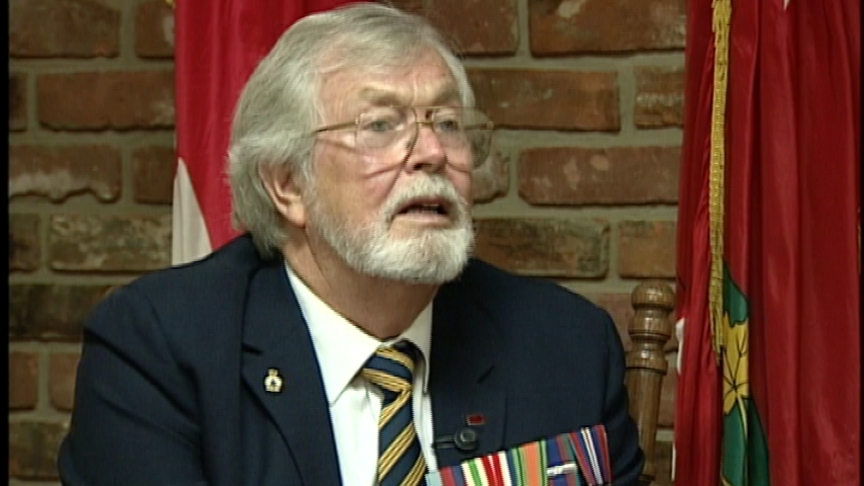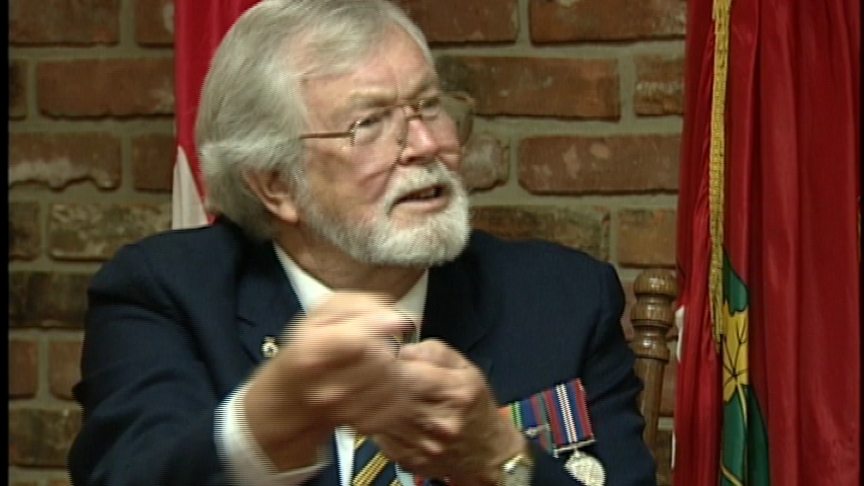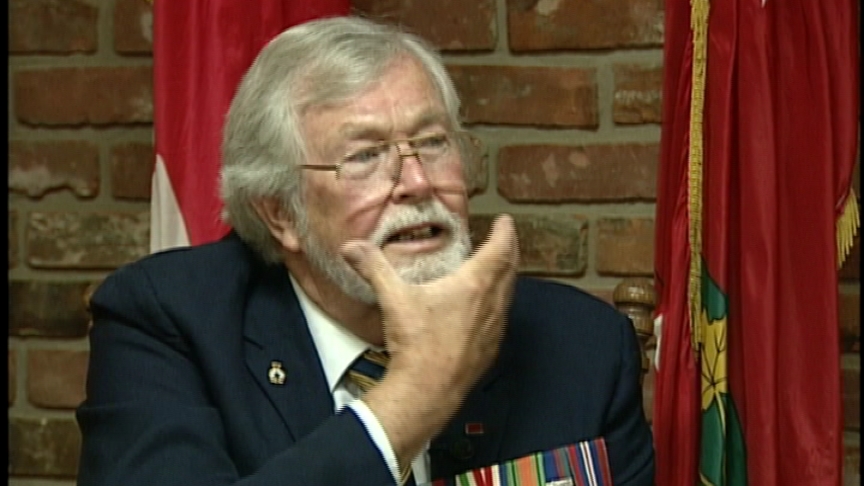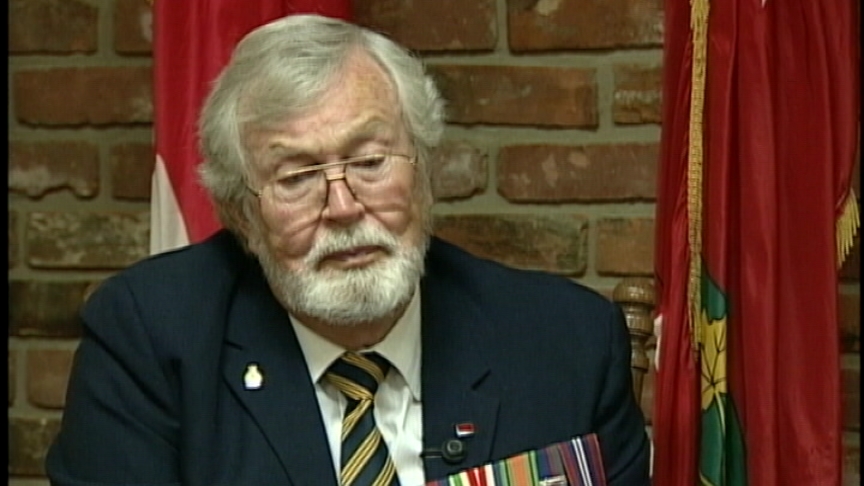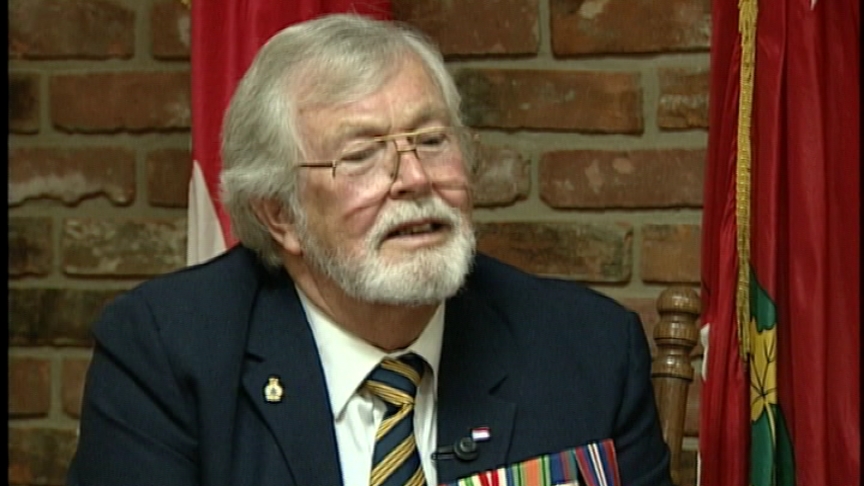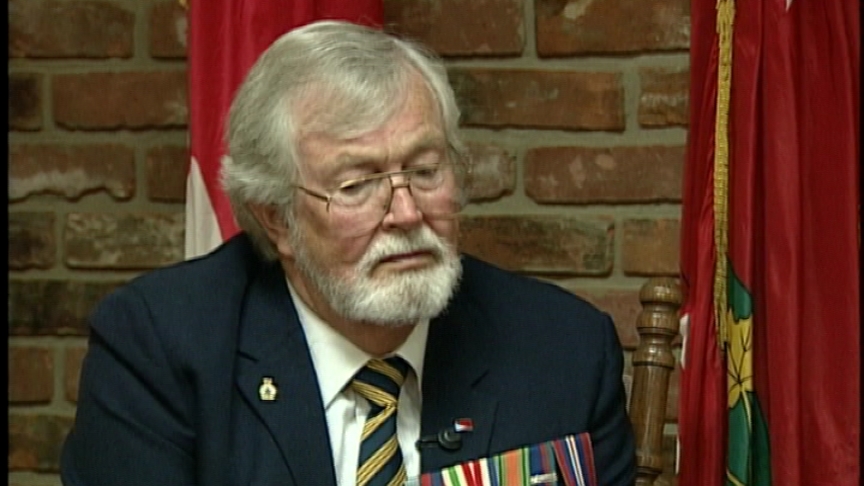German POW
Heroes Remember
German POW
Transcript
The Germans were on the run and we came to one town and we're
told to hold and when we come to a place like that, staying for
the night we always found the place for squadron headquarters
and then distribute troops around for guard and sentry duty.
I went to the local hotel. I thought that would be a great
place for squadron headquarters. So I went there and there were
people crying outside the door and I found out when I went
inside, the Germans as they were leaving town in a truck it was
past curfew. Curfew in these towns there, nobody out at night
and two little kids were running home and they machined gunned
the two little kids. I went inside and the little boy was lying
over in the corner dead. The little girl was on the table and
there was a doctor there trying to save her life. She was a
beautiful little girl, long blond hair, beautiful face and I
couldn't figure out how the worst of the human race could
machine gun these little kids. That little girl's face still
haunts me. I went back, I went back to, to regimental
headquarters to report our days to our intelligence officer and
I went in and he had two German officers there and so I said to
him, "I your getting lots a information here?" He said, "I
can't get a damn word out of them." I said, "Well I thought you
were excellent in German?" He said, "They speak better
bloody English than you do." So I went over to one officer and I
said, "Why won't you give them any information?" and he gave me
one of these super silliest smiles, the wrong time. I said,
"Listen you bastard you tell him what he wants to know or I'll
spread you brains all over the wall." and I'd taken out my gun
and I had pointed it at him and I had decided I'm gonna spread
his brains. I was thinking of the two little kids and I pointed
at him I could see his eyes he was, you know, starting
to get a little panicky and I pointed and I fired. I missed him.
I was aiming for the top. I missed him. I don't know how.
Franky Lawlor, the intelligence officer, went under the desk.
For a gun going off in a confined room it's quite a bang and I
said well I'm not going to miss him again. And I readied, cocked
and the intelligence Sergeant came in front of me and said,
"Please sir we're trying to interrogate these officers." So I
suddenly realized that's fine. So I left. In the morning I
went back to apologize to, to the intelligence officer. He said,
"No intelligence no apology is required," he said, "they talked
and they talked and they talked." Even when they were sending
them back to brigade they were still wanting to give more
information. He thought that I had just fired the gun to scare
them he really know that I was trying to kill the bastard and I
realized fterwards you know, you hear about Germans shooting
unarmed prisoners of war, not Canadian, and definitely not me,
but yet I almost did.
Description
Now Captain, his troops had moved to Holland, near the town of Arnhem. Mr. Murray relates a chilling account of a confrontation with a German who has been taken a prisoner of war.
Robert Murray
Robert Murray was born in Toronto, Ontario on February 8, 1918. His father was Inspector of Detectives of the Toronto police force. Mr. Murray had six brothers and sisters. He was the second youngest.
Meta Data
- Medium:
- Video
- Owner:
- Veterans Affairs Canada
- Duration:
- 05:22
- Person Interviewed:
- Robert Murray
- War, Conflict or Mission:
- Second World War
- Branch:
- Army
- Units/Ship:
- 3rd Division, 8th Brigade of the 5th Battalion of the Canadian Mounted Rifles
Related Videos
- Date modified:



